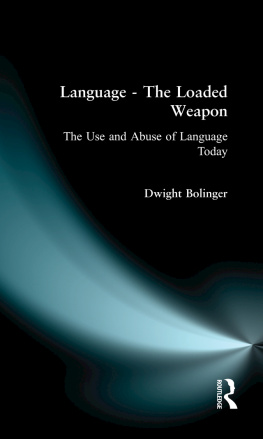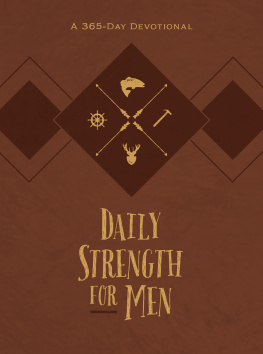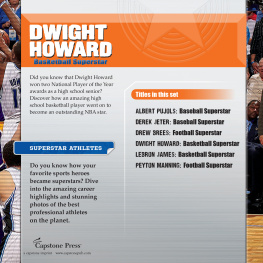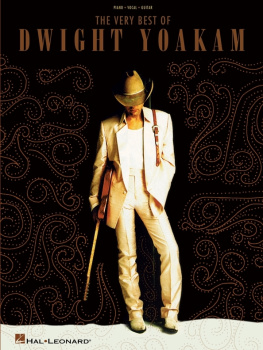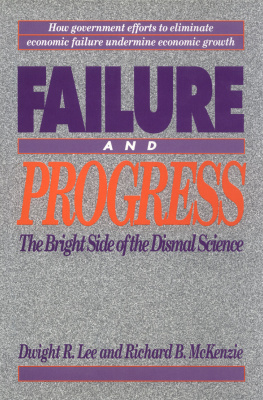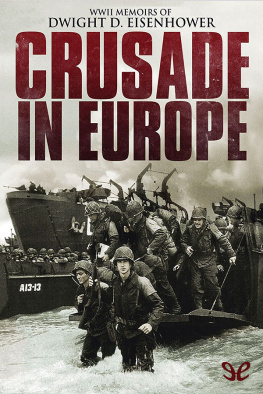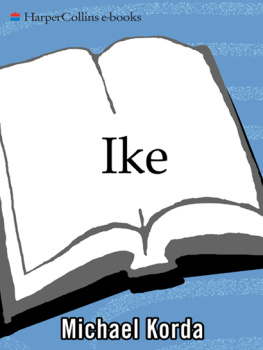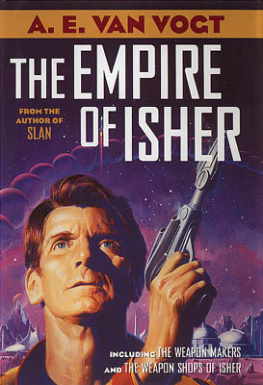Bolinger Dwight - Language - the Loaded Weapon
Here you can read online Bolinger Dwight - Language - the Loaded Weapon full text of the book (entire story) in english for free. Download pdf and epub, get meaning, cover and reviews about this ebook. year: 1980, publisher: Taylor & Francis Group, genre: Children. Description of the work, (preface) as well as reviews are available. Best literature library LitArk.com created for fans of good reading and offers a wide selection of genres:
Romance novel
Science fiction
Adventure
Detective
Science
History
Home and family
Prose
Art
Politics
Computer
Non-fiction
Religion
Business
Children
Humor
Choose a favorite category and find really read worthwhile books. Enjoy immersion in the world of imagination, feel the emotions of the characters or learn something new for yourself, make an fascinating discovery.
- Book:Language - the Loaded Weapon
- Author:
- Publisher:Taylor & Francis Group
- Genre:
- Year:1980
- Rating:5 / 5
- Favourites:Add to favourites
- Your mark:
- 100
- 1
- 2
- 3
- 4
- 5
Language - the Loaded Weapon: summary, description and annotation
We offer to read an annotation, description, summary or preface (depends on what the author of the book "Language - the Loaded Weapon" wrote himself). If you haven't found the necessary information about the book — write in the comments, we will try to find it.
Language - the Loaded Weapon — read online for free the complete book (whole text) full work
Below is the text of the book, divided by pages. System saving the place of the last page read, allows you to conveniently read the book "Language - the Loaded Weapon" online for free, without having to search again every time where you left off. Put a bookmark, and you can go to the page where you finished reading at any time.
Font size:
Interval:
Bookmark:

Language - The Loaded Weapon
The use and abuse of language today
Dwight Bolinger

To the memory of beloved Ruth
First published 1980 by Pearson Education Limited
Thirteenth impression 1999
Published 2014 by Routledge
2 Park Square, Milton Park, Abingdon, Oxon OX14 4RN
711 Third Avenue, New York, NY 10017, USA
Routledge is an imprint of the Taylor & Francis Group, an informa business
Copyright 1980, Taylor & Francis.
All rights reserved. No part of this book may be reprinted or reproduced or utilised in any form or by any electronic, mechanical, or other means, now known or hereafter invented, including photocopying and recording, or in any information storage or retrieval system, without permission in writing from the publishers.
Notices
Knowledge and best practice in this field are constantly changing. As new research and experience broaden our understanding, changes in research methods, professional practices, or medical treatment may become necessary.
Practitioners and researchers must always rely on their own experience and knowledge in evaluating and using any information, methods, compounds, or experiments described herein. In using such information or methods they should be mindful of their own safety and the safety of others, including parties for whom they have a professional responsibility.
To the fullest extent of the law, neither the Publisher nor the authors, contributors, or editors, assume any liability for any injury and/or damage to persons or property as a matter of products liability, negligence or otherwise, or from any use or operation of any methods, products, instructions, or ideas contained in the material herein.
ISBN 13: 978-0-582-29108-9 (pbk)
British Library Cataloguing in Publication Data
Bolinger, Dwight
Language, the loaded weapon
1. Sociolinguistics
I. Title
301.2'1 P40 80-40301
My first thanks are to the person who encouraged this project when it was less than a glimmer, and who nursed it along as it grew: Peggy Drinkwater, Longman's editor for linguistics until her retirement (with the manuscript still in her hands) in 1979.
I thank the several readers who steered me away from certain quicksands: Geoffrey Leech, who read the manuscript for Longman, and William Howarth, Terence Langendoen, and James Sledd, who read it for Princeton University Press.
I thank my artist friend Shirley Ortiz for her suggestions and encouragement.
I thank all those who took the trouble to provide me with material, especially Walter M. Brasch for quotations from William Smith and Bayard Rustin; Carol N. Brown of the Saturday Evening Post for copies of the Curtis Code; the Miami Herald for material on George Smathers; Randy Riddle of KCBS San Francisco for comments on his interview with William E. Colby; and Alan Simpson for the text of his 'Liberal Education in a University'.
I thank those several scholars, too many to name, whose unpublished works were referred to and who kept me up to date on the progress of publication.
We are grateful to the following for permission to reproduce copyright material:
Harper and Row Publishers Inc for extracts from Simple and Direct: A Rhetoric For Writers by Jacques Barzun Copyright 1975 by Jacques Barzun. Reprinted by permission of Harper and Row Publishers Inc; the author, Sydney W. Riser for an extract from her letter published in Palo Alto Times 17 November 1978 (now known as Peninsula Times Tribune ); the author, John Simon for extracts from the Dick Cavett Show on Public Television USA 11-12 January 1978.
In this century there has been one - perhaps only one - upsurge of popular interest in how language affects our lives. It began with the publication of Alfred Korzybski's Science and Sanity (1933) - or, rather, with the popularizations of his work that appeared a few years later. Korzybski was a Polish-born scientist and philosopher whose interest in the continuity of culture led him to a study of the means of culture-transmission in modern society, which of course is language first of all. His laboratory was the failures of transmission, which he investigated in psychiatric patients. He was a pathologist of language; he probed the sane and insane ways of speaking and understanding, and the social ills that result from certain forms of linguistic insanity, by no means confined to psychiatric wards. He not only observed but prescribed: his system of 'General Semantics' embodied a training in linguistic hygiene.
Korzybski's best-known disciples were Stuart Chase and Samuel Hayakawa, Chase was an economist who spent two years wrestling with the formidable prose of Science and Sanity before bringing out his Tyranny of Words in 1938, a down-to-earth version of General Semantics that for a time enjoyed enormous popularity. Hayakawa's Language in Action (now Language in Thought and Action) was a Book-of-the-Month Club selection when it first appeared in 1941. Much of the excitement generated by these two books and other popularizations was due to the flood of propaganda from both sides in the Second World War, whose rumblings coincided with the appearance of Korzybski's work. The public was being lied to and knew it, and there was keen interest in ways of detecting the deceptions. In America a number of well-known figures, including Clyde Beals, W. H. Kilpatrick, Paul Douglas (later Senator from Illinois), and Robert Lynd, established an Institute of Propaganda Analysis. But the excitement soon died. By the end of 1941 the country was too busy generating propaganda to spend much time analyzing it. One of the echoes from that time is the still current use of the word semantics to mean verbal pettifogging - now joined by rhetoric in a similar sense (extended from an older unfavorable meaning, 'ostentatious language'). In the schools the ideas have been kept alive by Hayakawa's book, which has remained a favorite. Among linguistic scholars General Semantics was never highly regarded, partly because of its therapeutic claims and the fact that Korzybski became a sort of cult figure, and partly because of a shortness of vision in linguistics itself at the time.
But there was also a weakness that General Semantics shares with nearly all the writings about language as a manipulator of minds and emotions: they seldom dig below the meanings of individual words. Korzybski wanted to make everyone aware of the conflict between nature in flux and the deceptive stability of words. Labels persist: one can permanently criminalize a man or a woman by viewing the person as a unitary individual. Is George in 1981 the same George as the George of 1970, who stole a car for a joyride? The way to escape this kind of false equation is to index him: George 1970 and George 1981. Maybe he is the same, maybe not. There is no denying the importance of this kind of critique, but it sees only the bumps on the landscape. The underground streams, the buried strata, the fossils, the faults, and the veins of ore - the grammar as a whole and even the broader semantics of the words - all too often go unexamined. No slight was intended, but as the professional linguists of Korzybski's day in America were not much interested in meaning, much less therapeutics, the General Semanticists had no scientific body of information about language to draw upon. Circumstances have changed, and we are in a better position now to take up where they left off.
Font size:
Interval:
Bookmark:
Similar books «Language - the Loaded Weapon»
Look at similar books to Language - the Loaded Weapon. We have selected literature similar in name and meaning in the hope of providing readers with more options to find new, interesting, not yet read works.
Discussion, reviews of the book Language - the Loaded Weapon and just readers' own opinions. Leave your comments, write what you think about the work, its meaning or the main characters. Specify what exactly you liked and what you didn't like, and why you think so.

